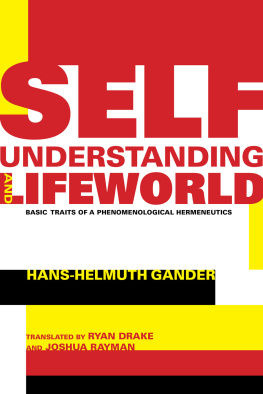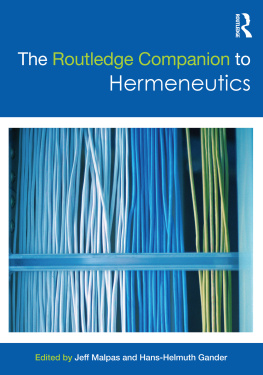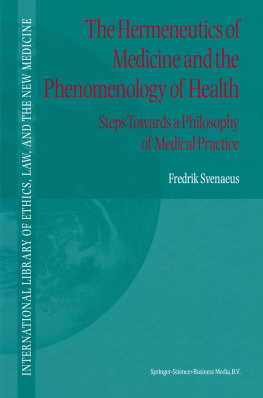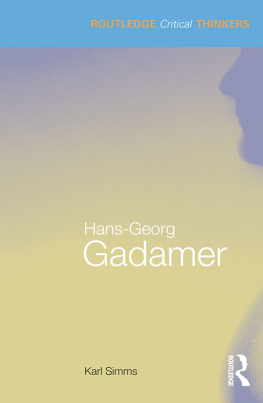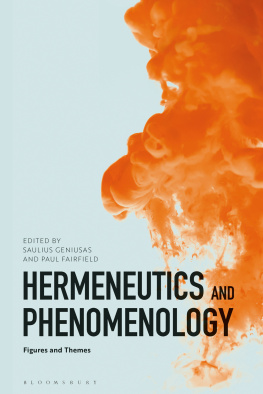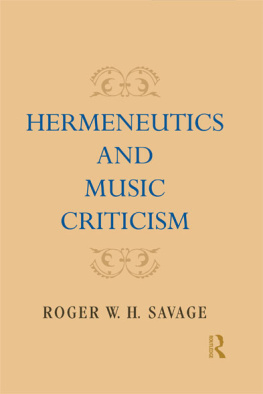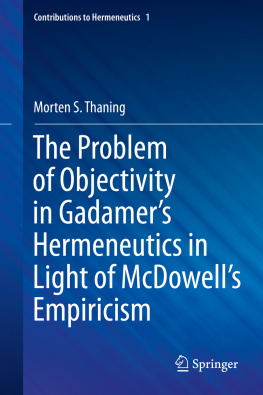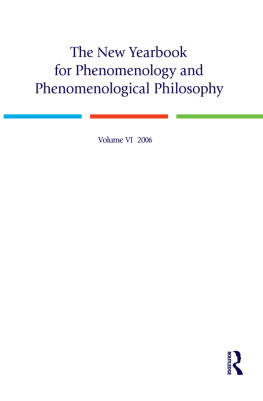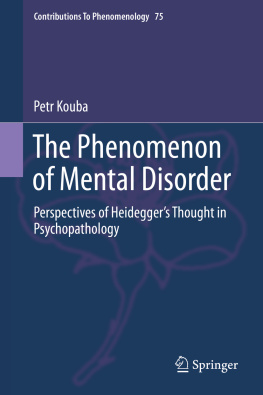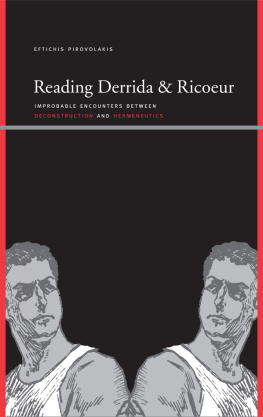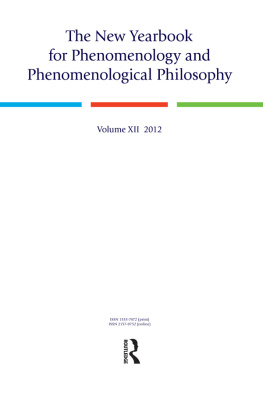
SELF-
UNDERSTANDING AND
LIFEWORLD
STUDIES IN CONTINENTAL THOUGHT
John Sallis, editor
Consulting Editors
Robert Bernasconi
John D. Caputo
David Carr
Edward S. Casey
David Farrell Krell
Lenore Langsdorf
James Risser
Dennis J. Schmidt
Calvin O. Schrag
Charles E. Scott
Daniela Vallega-Neu
David Wood
SELF-
UNDERSTANDING AND
LIFEWORLD
BASIC TRAITS OF A PHENOMENOLOGICAL HERMENEUTICS
HANS-HELMUTH GANDER
TRANSLATED BY
RYAN DRAKE AND JOSHUA RAYMAN
INDIANA UNIVERSITY PRESS
This book is a publication of
Indiana University Press
Office of Scholarly Publishing
Herman B Wells Library 350
1320 East 10th Street
Bloomington, Indiana 47405 USA
iupress.indiana.edu
Published in German as Hans-Helmuth Gander, Selbstverstndnis und Lebenswelt
2001 by Vittorio Klostermann GmbH, Frankfurt am Main
English translation 2017 by Indiana University Press
All rights reserved
No part of this book may be reproduced or utilized in any form or by any means, electronic or mechanical, including photocopying and recording, or by any information storage and retrieval system, without permission in writing from the publisher. The Association of American University Presses Resolution on Permissions constitutes the only exception to this prohibition.
The paper used in this publication meets the minimum requirements of the American National Standard for Information SciencesPermanence of Paper for Printed Library Materials, ANSI Z39.481992.
Manufactured in the United States of America
Library of Congress Cataloging-in-Publication Data
Names: Gander, Hans-Helmuth, 1954- author.
Title: Self-understanding and lifeworld : basic traits of a phenomenological hermeneutics / Hans-Helmuth Gander ; translated by Ryan Drake and Joshua Rayman.
Other titles: Selbstverst?andnis und Lebenswelt. English
Description: 1st [edition]. | Bloomington : Indiana University Press, 2017. | Series: Studies in Continental thought | Includes bibliographical references and index.
Identifiers: LCCN 2017013831 (print) | LCCN 2017030883 (ebook) | ISBN 9780253026071 (e-book) | ISBN 9780253025555 (cloth : alk. paper)
Subjects: LCSH: Husserl, Edmund, 1859-1938. | Heidegger, Martin, 1889-1976. | HermeneuticsHistory. | PhenomenologyHistory. | LifeHistory.
Classification: LCC B3279.H94 (ebook) | LCC B3279.H94 G3613 2017 (print) | DDC 193dc23
LC record available at https://lccn.loc.gov/2017013831
12345222120191817
It is a rule of life that we can and must learn from all people. There are serious things in life that we can pick up from charlatans and bandits; there are philosophical insights that make fools of us; there are lessons in consistency and adherence to law that surface by chance and originate from chance. Everything lies resolved in all things.
Fernando Pessoa
Work in philosophyin many ways like work in architectureis actually more like work on oneself. On ones own perception. On how one sees things. (And what one demands from them).
Ludwig Wittgenstein
Only he who understands this art of existing, treating in his acting the particular thing apprehended as the utterly unique and being just as clear about the finitude of his acting, only he understands finite existence and can hope to complete something in it.
Martin Heidegger
In Memory of
Jrgen von Kempski Rakoszyn
CONTENTS
PART ONE
IN THE NETWORK OF TEXTS: TOWARD THE PERSPECTIVE CHARACTER OF UNDERSTANDING
PART TWO
I AND WORLD: THE QUESTION CONCERNING THE GROUND OF PHILOSOPHY
PART THREE
SELF-UNDERSTANDING AND THE HISTORICAL WORLD: BASIC TRAITS OF A HERMENEUTICAL ONTOLOGY OF FACTICITY
TRANSLATORS INTRODUCTION
In Self-Understanding and Lifeworld: Basic Traits of a Phenomenological Hermeneutics, Hans-Helmuth Ganders Gadamerian orientation leads him to think seriously about what is typically ignored or neglected in the current state of phenomenology, namely, our hermeneutic experience of reading. Phenomenological inquiry is most often directed to our experience of the world, to sense experiences, to questions of reality and knowledge, and to a lesser extent to thinking and understanding. But when we, as philosophers trained in or engaged with the continental tradition, are steeped so heavily in the reading of texts, this experience of reading demands its own proper explication as an interpretive mode of letting the phenomena show themselves in themselves as they are, in Heideggers terminology. Ganders text is an attempt to develop a phenomenological hermeneutics out of an examination of reading. He locates Heideggers turn from Husserl, which he dates back almost a decade prior to Being and Time, in precisely this turn to hermeneutics. In Ganders hands, the pursuit of a phenomenological hermeneutics constitutes an attempt to uncover the prior or fore- structure of the interpretation of sense or meaning in every act of reading. From this complex forestructure (for which Gander identifies three constitutive parts) that enables human experience, he goes on to uncover the hermeneutical problems hitherto foreclosed by the dominant model of the Cartesian subject, whereby the nature of the I cannot be distinguished rigorously from the world. World, for Gander, is lifeworld. But this position differs from that of Husserl, since the self cannot be abstracted from this lifeworld and it involves the hermeneutical exposition of the prior relations of the self within the lifeworld. The concepts that Gander articulates from this mode of analysis involve experience, particularly the experience of wonder, seen through the lens of the hermeneutics of facticity. The task of setting forth self and world is never to be separated from a lifeworldly self-understanding that is historical and that involves the significance of the self-world. For this reason, while drawing so much from Heidegger, Gander nonetheless faults his work for failing to engage as critically with its own time as did the work of Kant, Kierkegaard, Nietzsche, and others. Thus, where Heidegger places the task of the destruction of the history of ontology very early in Being and Time ( 6), Gander closes with this task of phenomenological destruction of the tradition (historical critique) as something essentially focused on the enlightenment of the present, such that the historical character of human existence entails that we not close our eyes to the significance of what is unfolding before them.
In this project the reader is rewarded by Ganders sustained and idiosyncratic focus on the early Heidegger, which in his thinking is not a means of once again reducing Heideggers work entirely to the status of mere preparatory drafts, revisions, and stages on the way to the mature thought of Being and Time, but rather a body of work considered in its own right. In particular, Gander shows us that we must go all the way back to Heideggers 1919 lectures in order to grasp the appearance and development of what he terms phenomenological hermeneutics, which to no small degree sets out and guides the collection of considerations that compose the philosophical heart of Ganders study.
While Heidegger enjoys a privileged position in this study, a primary virtue of Ganders text is that it sets its sights on locating and bridging the differences within the phenomenological-hermeneutical triad of Edmund Husserl, Martin Heidegger, and Hans-Georg Gadamer. In so doing, Gander seeks to constitute something novel, forging a unique synthesis of their work wherein underlying and overlapping difficulties can be brought to light and overcome. And as head of the Husserl Archive at Freiburg University and a former editor of Heideggers
Next page
